What a Day the 2025 Maine Food Convergence Was! From thoughtful sessions and collaborative brainstorming to a local “Cafeteria Reimagined: School Food Grown Different!” lunch, art-making, and boat rides, the energy was incredible. As the dust settles, we're reflecting on what emerged and how we can carry this momentum forward.
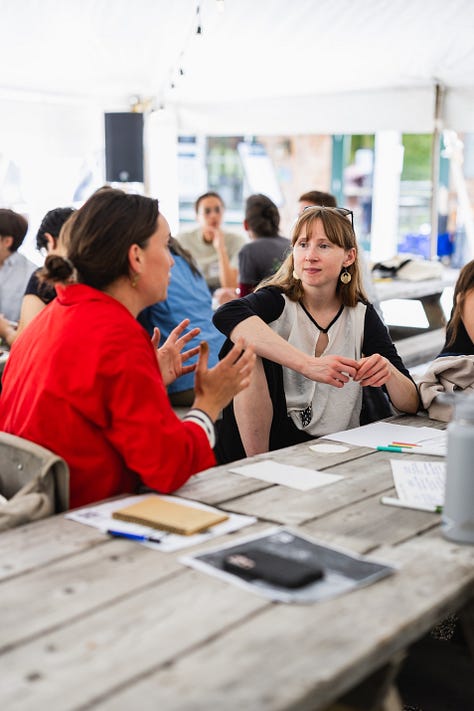
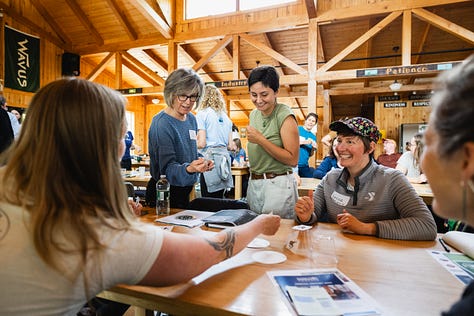
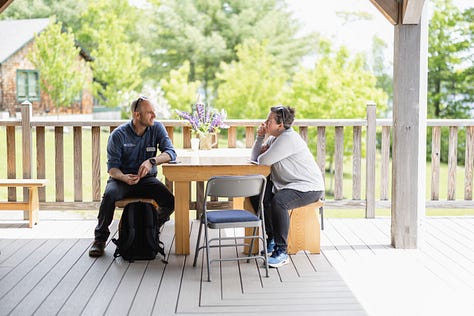
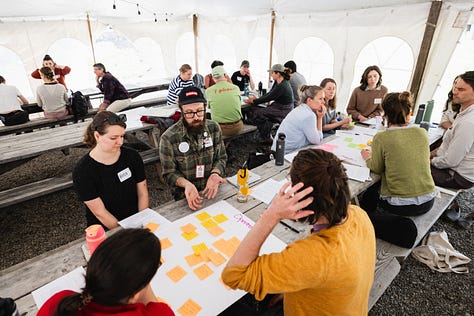
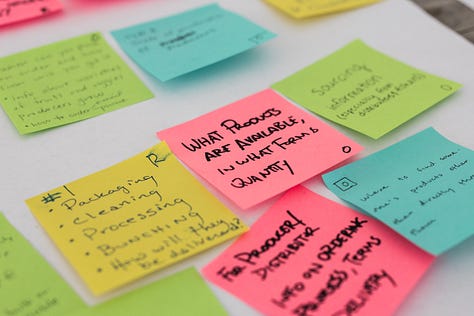
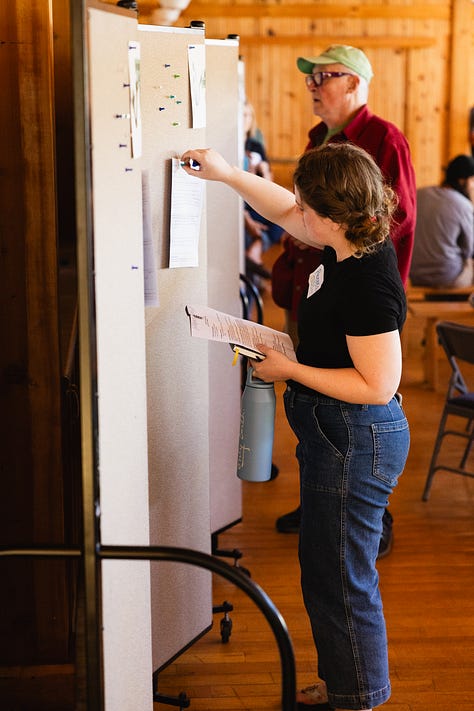
From the Collective Action Mural, themes surfaced about what matters most to our Convergence community. Many want to see stronger coordination across the local food supply by increasing resource-sharing between producers, harvesters, and buyers — moving toward more collective food production and building lasting partnerships. The Processing Working Group is helping lead some of these efforts and conversations, along with the Local Food Switchboard.
Participants also uplifted the need to support the charitable food system while imagining and building systems where it’s no longer needed. During the virtual session “When Government Fails Us, Community Care Bails Us,” folks learned more about mutual aid efforts already underway — including the work of ETR from Resources for Organizing & Social Change.
One of our main Convergence priority areas — Honoring the Expertise & Leadership of People Most Impacted by Inequities — sparked calls to increase transparency around funding and resource-sharing, and to create more spaces rooted in collective care. Youth engagement was another powerful thread, with many naming the importance of young people valuing and shaping their local food systems. Ensuring youth are involved and represented in these conversations is essential. A wide breadth of voices and lived experiences is key to improving coordination and policy support statewide. The importance and nuances of paying people with lived expertise as expert consultants came up in numerous sessions as well as in opening remarks of the in person day – and how this cannot be a passing trend.
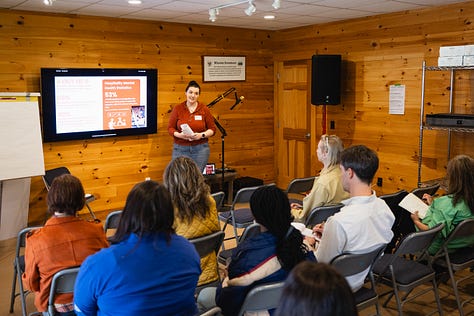
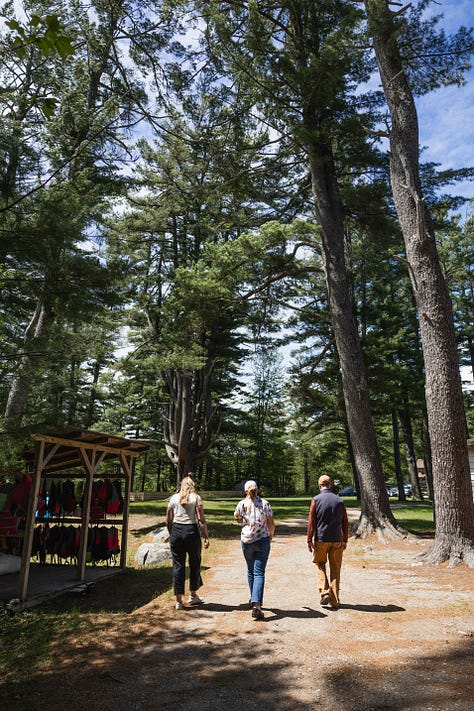
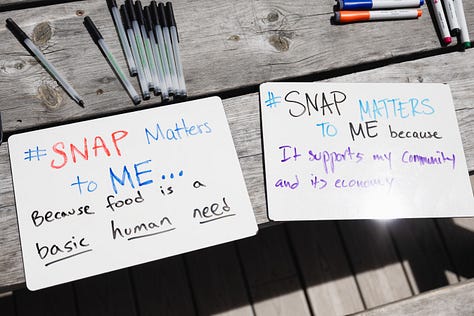
We also heard the need for more authentic, coordinated storytelling — especially around how federal programs like SNAP and Harvest Bucks are impacted by funding cuts, and how those changes trickle down to affect local producers and harvesters. There’s a clear call to share a more realistic and educational view of our food system.
Continue to tap in and stay involved as learnings and ideas from the event are moved forward into action. There’s much more to come — and it will take all of us.
Join or learn more about our Work Groups
Support Mutual Aid Resources like ETR
Share this newsletter with friends
Add something to the Collective Action Mural
Donate to the Maine Food Convergence Project so we can continue our work!
Maine Food Narratives
Call for Submissions: Share Your Voice in a New Maine Food Zine!
What does a thriving local food system look like? What if everyone could grow, cook, and eat food that is nourishing, meaningful, and rooted in community? The Maine Food Narratives Work Group is coordinating a zine—a small, creative grassroots publication that centers real voices and inspires action. The zine theme will uplift stories, art, and ideas surrounding food sovereignty, also known as food freedom, community food power, and having local control over our food systems.
Submissions are invited from Maine residents that explore themes such as: the meaning of food sovereignty, visions for land, water, and cultural food traditions, hopes for a just, people-powered food system, and the ways food connects people and supports a better future.
The submission period is open until July 18, 2025. Selected contributors will receive a $50 gift card or check and will be credited in the final publication. All submissions must reflect the theme of food sovereignty. Whether it’s a poem, story, drawing, or reflection—this is an opportunity to help imagine a food system built by and for Maine communities.
See THIS LINK for more information on submissions.
Climate and Food Systems
The Climate and Food Systems Work Group took a hiatus in May and came back in June to welcome a few prospective members and reflect on the last year. In the coming months, we’ll discuss potential directions for the work group, opportunities to narrow focus to fill a gap or move forward an initiative, as well as structures for our regular meetings. If you’ve been curious about this work group or eager to get involved in the ever-fascinating and critical intersection of food and climate work - now is the time! Reach out to eliseh@mycj.org or juliana.beecher@gmail.com.
**TONIGHT**:
Were you inspired by the energy and ideas shared during the 2025 Convergence sessions? From deep conversations about food justice and climate to powerful moments of connection across sectors, the priorities that were explored—like strengthening local food supply coordination, uplifting community-driven solutions, and honoring the leadership of those most impacted—sparked real momentum.
Whether you were able to join virtually or in person, or are tuning in now, you are invited to keep that inspiration going. Join for a post-event gathering to share what resonated, connect with others, and imagine what a thriving Maine food system could look like. REGISTER HERE
CEBE is hiring an Executive Director!
After more than 10 years of excellent leadership, CEBE’s founding Executive Director is retiring in 2025. The Center for an Ecology-Based Economy seeks a candidate who is passionate about the organization’s mission and will work collaboratively with our tight-knit and dedicated team. The Director will have overall strategic and operational responsibility for executing CEBE’s mission. Working as a collaborative leader, the Director is responsible for managing CEBE’s staff and general administration of the organization, including overseeing communications, creating and managing budgets, and securing funding to achieve the organization’s strategic goals. Apply by June 13. Details here.








